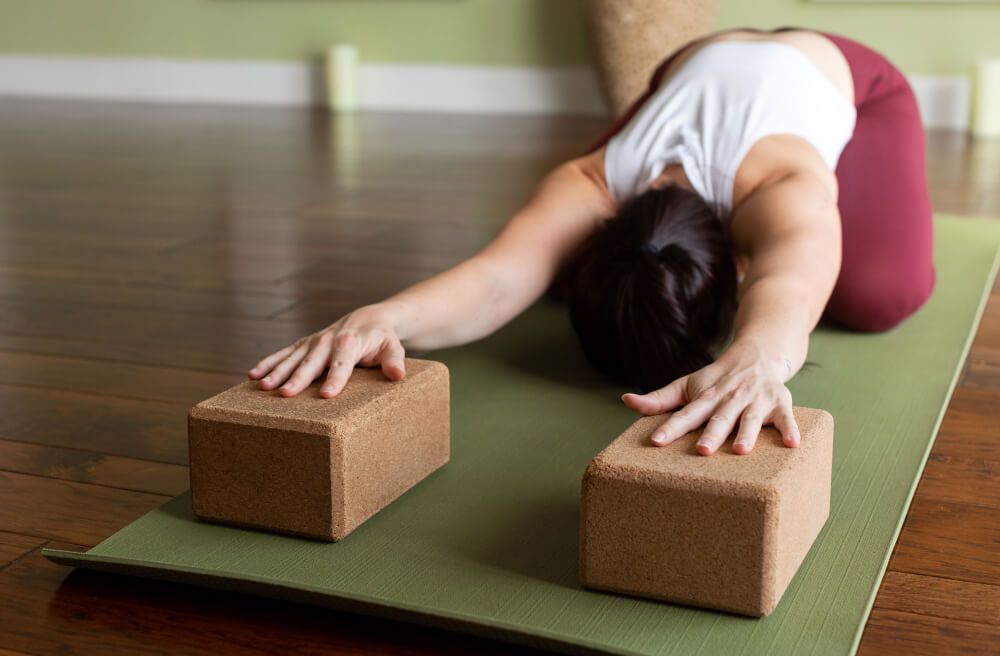5 Reasons Why Doing Yoga Leads To A Healthier Brain
- By David Freudenberg
- •
- 04 Nov, 2020
- •

Whenever you finish a yoga session, don’t you notice that you feel so much better? You feel as if a new power has washed over you when your muscles feel more relaxed. You can reap tons of physical benefits from doing yoga, such as increased flexibility, reduced chronic neck pain, stronger bones, and lower risk of heart disease.
In addition to numerous physical benefits, yogis also get advantages that are not so visible. When you do yoga, there’s a sense of mental clarity you get after practice. As much as physical transformation, yoga enhances the mind as well.
Jonathan Greenberg Ph.D., from the Massachusetts General Hospital Department of Psychiatry, shares how yoga can help different issues. He says, “We know that accumulating evidence shows yoga is good for your body, health, and mind. Yoga has been used to treat anxiety conditions, depression, insomnia, eating disorders, and others.” A recent study shows how yoga and meditation’s weekly practice can help beat older adults’ mental decline.
There are proven studies that yoga is useful when you add it to your daily routine. However, how exactly does doing a downward-facing dog bring you mental benefits? To give you an idea, we’ve gathered some reasons why doing yoga leads to a healthier brain.
1. Yoga reduces chronic stress.
Stress can be the foundation of many physical and mental issues. When you practice yoga – even after a single class – your stress hormones known as cortisol, decrease. It lessens because your mood improves during practice. We escape our busy lives for a moment whenever we’re in session, so we push away the stressful thoughts, clear our mind, and focus during this time.
Yoga also helps regulate the inflammatory response of your immune system. When we’re too stressed, our body’s inflammatory response loses control, influencing diseases, and other health problems such as depression.
Whenever your day is not going well, you can do a quick yoga practice to drive down your stress levels. This activity is a great way to cope, put your problems in perspective, and avoid the risks of depression.
2. Yoga helps you calm down.
When you do deep breathing exercises and meditate during yoga, the hormones from your sympathetic nervous system (the system that directs your fight or flight response to stressful situations) decrease. Meanwhile, hormones from your parasympathetic nervous system (the system that helps you rest and conserves energy) increase.
This process of regulating hormones from doing yoga can lower your heart rate and blood pressure. When your body is calm, naturally, the brain picks this up and calms down as well. However, you don’t want to be too calm.
To be able to practice yoga effectively, there should be a balance between the two systems. Amy Wheeler Ph.D., from the International Association of Yoga Therapists Board of Directors, share how SNS and PNS go hand in hand during yoga. She says, “What yoga can teach you is to use your SNS when you need it for clarity, alertness, and focus without going into the fight or flight response. The ultimate goal of yoga is to be calm and alert.”
3. Yoga influences your brain structure.
In a 2017 study from the International Psychogeriatrics journal, researchers have found that adults with mild cognitive impairments over 55 years old improved their memory after practicing Kundalini yoga. In addition to that, the group also had increased their emotional resilience and executive functioning.
Other studies prove how yoga can increase your brain function, like improving your focus and retaining information. When you meditate during yoga, your brain’s structures that deal with awareness, attention, and memory increase in volume and develop more gray matter in density.
If your mind feels unclear and foggy, take some time for yourself and spend at least 20 minutes on the mat. The session will help you calm down and help you focus and sort out your thoughts.
4. Yoga can help manage bipolar disorder.
Research from The Journal of Psychiatric Practice surveyed 100 yogis with bipolar disorder. Participants were asked how yoga has affected their lives. More than 70 out of 100 answered that practicing yoga is “life-changing” for them.
Other respondents also shared that yoga has helped decrease their anxiety and promote calm, helping control mania symptoms. Additionally, some shared that practicing yoga has distracted them from depressive thoughts and increased their mental clarity. The researchers wrote, “There is clear evidence that yoga seems to be a powerful practice for some individuals with BD. It was striking that some of our respondents believed that yoga had a major positive impact on their lives.”
5. Yoga promotes a peaceful mind.
Notice that when yogis are in stressful events, they respond to it very calmly. That’s because practicing yoga can give you that zen attitude. Research shows that those who meditate have a larger right insula (the part of the brain that is aware of your body’s state). When you do yoga, you also encourage your mind to slow down and take the time to process your thoughts.
In stressful situations, being aware and knowing how to handle stress can prevent the event from escalating. While the brain processes information very quickly, it can only take one thought at a time. Having a sense of awareness will help the brain slow down and create a positive and peaceful mindset.
Conclusion
There are multiple ways to keep your brain healthy, and yoga is one activity in which you can target different health goals for your mind. Check-in with yourself and ask if you need to work out your mind.
A healthy mind is calm, has a strong memory, and easily makes decisions; if you check all the boxes, congratulations! Keep up the excellent work by practicing yoga to avoid future mental decline.











